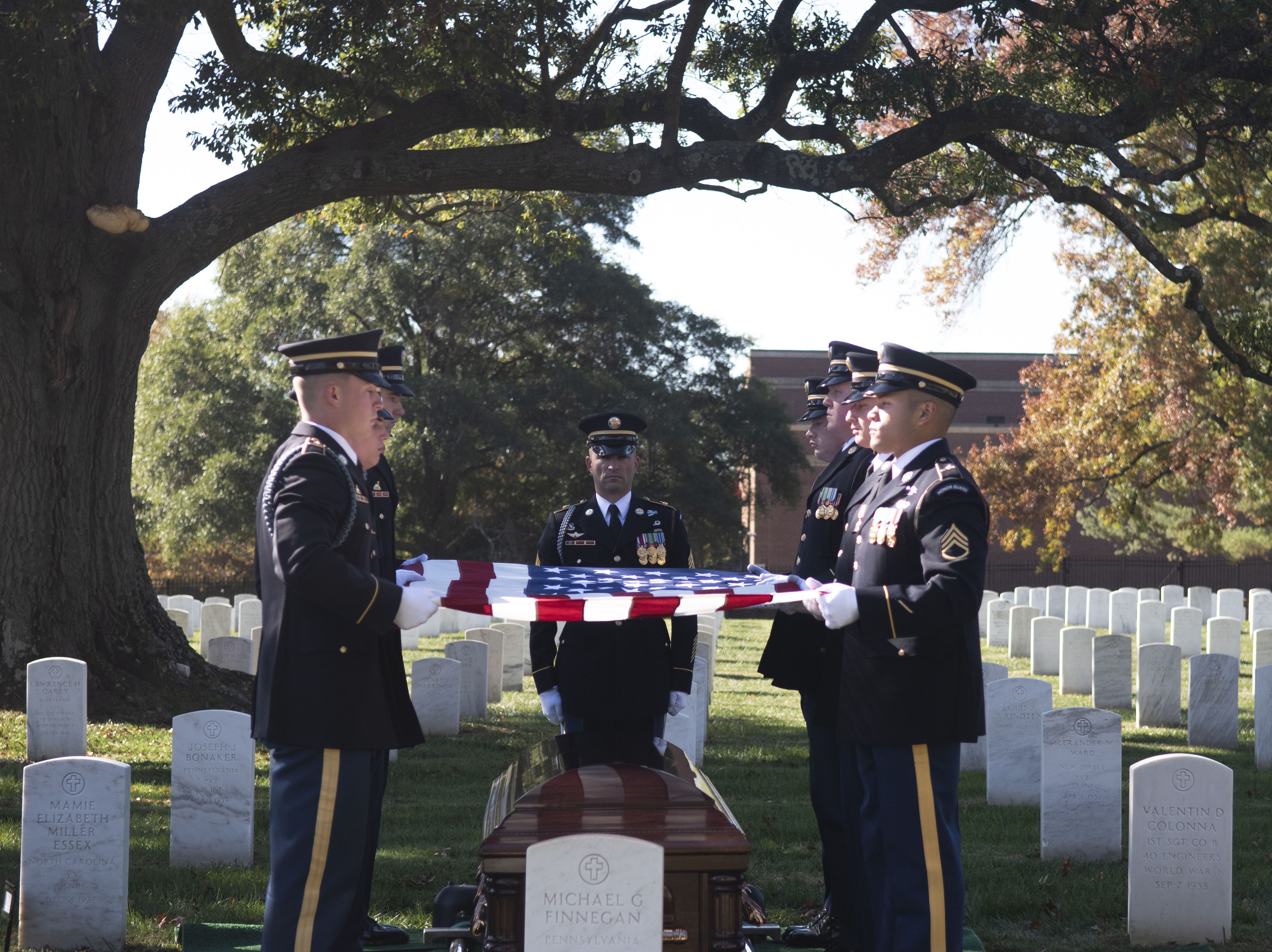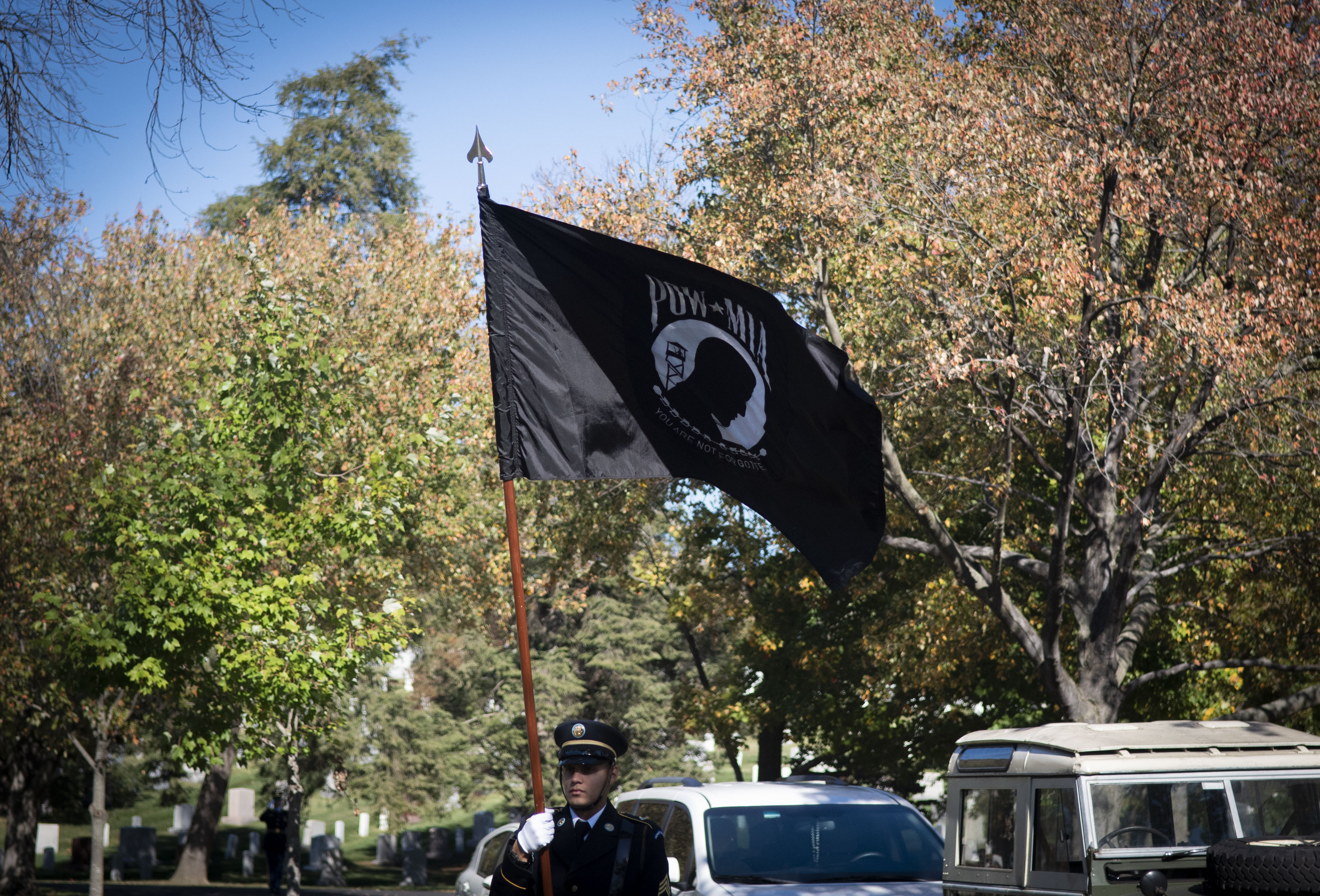
When U.S. Army Pvt. David Whipple’s descendants could not attend his funeral service at Arlington National Cemetery on Nov. 3, 2023, Army soldiers and an Army Arlington Lady made sure he was laid to rest with honor and dignity.
Pvt. Whipple, who fought in the Philippines during the early months of World War II, died on July 26, 1942, in the Japanese Cabanatuan prisoner of war camp. He had survived three months of combat on the Bataan Peninsula and the tortuous Bataan Death March, during which starving and threadbare Americans and their Filipino allies were forced to march 65 miles, amidst brutal tropical weather, to POW camps. After his death, Whipple was buried in a group grave at the Cabanatuan POW camp cemetery.
In 1947, the American Graves Registration Service identified some of the remains from that group grave. The rest were buried at the Manila American Cemetery and Memorial. In 2018, the Defense POW/MIA Accounting Agency disinterred the remains and positively identified Whipple’s.
“He has shed his blood in defense of our nation, and he endured captivity as a prisoner of war,” said Army Chaplain (Cpt.) Brady Feltz to an audience of three at the funeral service. “In life and death, he honored this flag, and now this flag will honor him.”
The three people in attendance were Cpt. David Oliver, a casualty assistance officer; Col. Brandon Bowman, chief of personnel for the Army Corps of Engineers; and Abigail Feltz, Chaplain Feltz’s wife. Cpt. Oliver represented the family and accepted the folded flag, while Bowman and Feltz attended simply to honor Whipple’s service.
Arlington Lady Pamela Suggs stood nearby. The Arlington Ladies volunteer to attend funerals to ensure that no soldiers, sailors, airmen, or Coast Guardians are buried alone. Suggs became an Arlington Lady after attending several funeral services for her son’s service comrades and realizing the importance of sacrifice that people in uniform make for their country.
Funeral services such as Whipple’s are why the Arlington Ladies exist. “This gentleman went through so much, between the Bataan Death March and to surviving a POW camp,” Suggs said after the service. “The very least we can do as Americans is say ‘thank you’ and be present.”
The firing team fired three salvos, a bugler sounded Taps and, even though no one from Whipple’s family attended, the Army honor guard folded the flag just as crisply as they would at a funeral attended by hundreds.
The funeral touched all in attendance. “It was a great honor,” said Cpt. Oliver. “One of our guys made the ultimate sacrifice.” Col. Bowman agreed. “Pvt. Whipple endured a lot for his country, and I’m glad to witness that he made it back.” Abigail Feltz concurred: “It was beautiful to see how Arlington takes care of service members,” she said.
The contrasts between Whipple’s funeral service and the conditions of his death were stark. Unlike the Bataan Death March, where American soldiers struggled in rags, the soldiers this day wore dress blues with medals gleaming from their chests. Unlike the steamy climate of the Philippines, cool breezes scattered red and orange leaves through the green grass of Section 18. Every soldier at the funeral was there to honor Whipple’s service, as part of his Army family.
